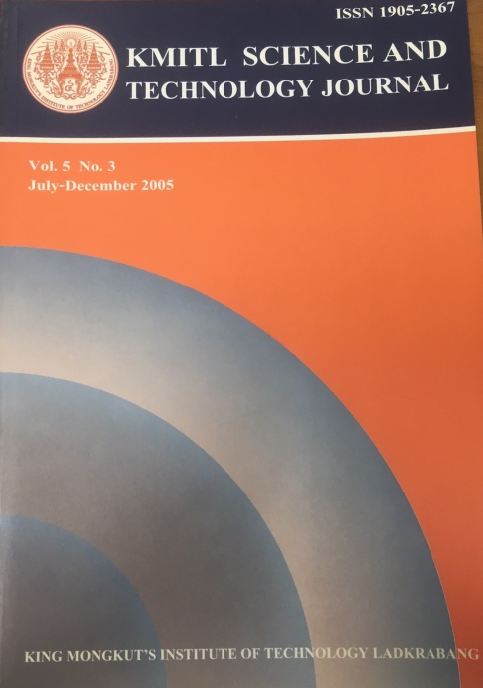High-Performance Adaptive Intelligent Direct Torque Control Schemes for Induction Motor Drives
Main Article Content
Abstract
This study presents a detailed comparison between viable adaptive intelligent torque control strategies of induction motor, emphasizing advantages and disadvantages. The scope of this study is to choose an adaptive intelligent controller for induction motor drive proposed for high performance applications. Induction motors are characterized by complex, highly non-linear and time varying dynamics and inaccessibility of some states and output for measurements and hence can be considered as a challenging engineering problem. The advent of torque and flux control techniques have partially solved induction motor control problems, because they are sensitive to drive parameter variations and performance may deteriorate if conventional controllers are used. Intelligent controllers are considered as potential candidates for such an application. In this paper, the performance of the various sensorless intelligent Direct Torque Control (DTC) techniques of Induction motor such as neural network, fuzzy and genetic algorithm based torque controllers are evaluated. Adaptive intelligent techniques are applied to achieve high performance decoupled flux and torque control. The theoretical principle, numerical simulation procedures and the results of these methods are discussed.
Keywords: Direct Torque Control, Induction Motor, Intelligent Control, Fuzzy, Neural Networks and Genetic Algorithm.
E-mail: cast@kmitl.ac.th
Article Details
Copyright Transfer Statement
The copyright of this article is transferred to Current Applied Science and Technology journal with effect if and when the article is accepted for publication. The copyright transfer covers the exclusive right to reproduce and distribute the article, including reprints, translations, photographic reproductions, electronic form (offline, online) or any other reproductions of similar nature.
The author warrants that this contribution is original and that he/she has full power to make this grant. The author signs for and accepts responsibility for releasing this material on behalf of any and all co-authors.
Here is the link for download: Copyright transfer form.pdf
References
[2] Buja, G., Casadei, D. and Serra, G. 2002 DTC-Based Strategies for Induction Motor Drives, IEEE-IAS Annual Meeting, 1506-1516.
[3] Habetler, T.G., Profumo, F., Pastorelli, M. and Tolbert, L.M. 1992 Direct Torque Control of Induction Machines Using Space Vector Modulation, IEEE Transactions on Industry Applications, 28, 1045-1053.
[4] Griva, G. and Habetler, T.G. 1995 Performance Evaluation of a Direct Torque Controlled Drive in the Continuous PWM-Square Wave Transition Region, IEEE Transactions on Power Electronics, 10, 464-471.
[5] Habetler, T.G., Profumo, F. and Pastorelli, M. 1992 Direct Torque Control of Induction Machines Over a Wide Speed Range, IEEE-IAS Annual Meeting, Conf. Rec., 600-606
[6] Krose, B.J.A. and van der Smagt P.P. 1991 An Introduction to Neural Networks. The University of Amsterdam, The Netherlands.
[7] Grawbowski, P.Z., Kazmierkowski, M.P., Bose, B.K. and Blaabjerg, F. 2000 A Simple Direct-Torque Neuro Fuzzy Control of PWM- Inverter- Fed Induction Motor Drive,. IEEE transactions on Industrial Electronics, 47, 863-870.
[8] Narendra, K.S. and Parthasarathy, K. 1990 Identification and Control of Dynamical Systems Using Neural Networks, IEEE Transactions on Neural Networks, 1, 4-27.
[9] “The MATLAB compilers user’s guide” in Math works handbook Math works 1994.
[10] William, J. 2001 Introduction to MATLAB 6 for Engineers. Palm III, McGraw-Hill International Edition.
[11] Bose, B.K. 1994 Expert System, Fuzzy Logic, and Neural Network Applications in Power Electronics and Motion Control, Proceedings IEEE, 82, 1303-1323.
[12] Lascu, C., Boldea, I. and Baabjerg, F. 2000 A Modified Direct Torque Control for Induction Motor Sensor less Drive, IEEE Transactions on Industry Applications, 36(1), 122-130.
[13] Lee, J.-H., Kim, C.-G. and Youn, M.-J. 2002 A Dead-Beat Type Digital Controller for the Direct Torque Control of an Induction Motor, IEEE Transactions on Power Electronics, 17(5), 739-746.


